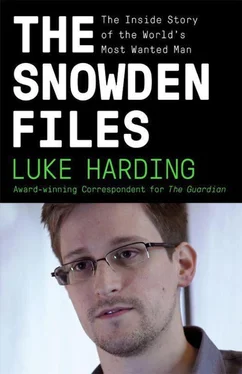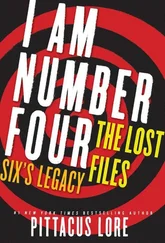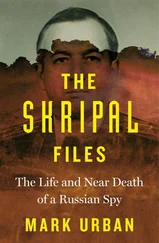Two days after the GCHQ hobbits supervised the destruction, the British government followed up Rusbridger’s offer. It asked the Guardian to identify the paper’s US media partners. The editor told them it was working with the New York Times and the non-profit ProPublica.
But it was another three and a half weeks before the UK’s foreign office did anything about the intelligence. On 15 August, Philip Barton, Britain’s deputy ambassador in the US, finally put in a call to Jill Abramson, the Times ’s executive editor. He requested a meeting. Abramson had been planning to travel to DC anyway. She had arranged to see James Clapper, the embattled director of national intelligence. Not about Snowden but about the alarming frequency with which the administration was exerting pressure on the Times ’s reporters, particularly those covering intelligence matters.
‘We have decades of experience publishing sensitive stories dealing with national security,’ Abramson says. In 1972 the Times published the Pentagon Papers, during the Arthur Sulzberger era. ‘We’re never cavalier. We take them [senior administration officials] seriously. But if a war is being waged against terrorism, people need to know the dimensions of that war.’
The deputy ambassador invited Abramson to drop into the British embassy. Rusbridger advised against doing so, on grounds of spycraft. So Abramson eventually agreed to meet at the ambassador’s residence, rather than at the embassy itself, which was technically on UK soil: who knew what British spooks might get up to there? At the meeting, Barton requested the return of the Snowden documents or their destruction. The UK-related leaks made his government uneasy, he said. Abramson neither confirmed nor denied that the Times possessed Snowden material. She promised to go away and think about it.
Two days later she called Barton back to say that the Times was declining his request. According to Abramson, ‘The meeting was a non-event. I never heard from them again.’ The British foreign office, it seemed, was merely going through the formal motions. Rusbridger had made clear that the material existed in many jurisdictions. ProPublica in New York had also been working with the Guardian for several months, as Number 10 knew. The British made no attempt to approach them.
That summer and autumn, Guardian US published several notable scoops. It revealed that the NSA was snooping on 35 world leaders, had subverted encryption, and was working with GCHQ to spy on British citizens – an apparent farewell present to the US from Tony Blair during his final days in office. The NSA also drafted procedures to spy on the British behind GCHQ’s back, if they felt US interests required it. This was most ungentlemanly: under the Five Eyes agreement, it was understood that the Brits and the Americans were not supposed to spy on each other. It was unclear whether the NSA had, accidentally or otherwise, eavesdropped on Cameron himself. He wasn’t on the list of 35, but some of his interlocutors were.
All these disclosures crossed the planet. Greenwald’s video talk had already set viewing records for the Guardian ’s website. Snowden then performed a live question and answer session on the site, while still in hiding in Hong Kong. Gabriel Dance, the paper’s interactive editor in the US, produced a novel interactive guide to mass surveillance, ‘The NSA Decoded’, which combined conventional text and graphics with video inserts. The Snowden saga demonstrated that modern technology could generate global traction for such a story at a very high speed.
Not least in the US, of course, because there it was having a transforming effect on the political landscape. When the first revelations were published, reaction on Capitol Hill was negative. There was condemnation of both the leaks and Snowden himself. Members of Congress instinctively sided with the security services.
Some independent-minded individuals, though, supported Snowden from the outset. One was Snowden’s hero Ron Paul. Paul said the US should be grateful to the young whistleblower for the service he had done in speaking out about the ‘injustice’ carried out by the government. Paul’s son Rand, the Republican senator from Kentucky, echoed this. He described NSA surveillance of Americans as an ‘all-out assault on the constitution’.
Figures as diverse as the right-wing commentator Glenn Beck and the liberal Michael Moore praised Snowden, as did the New Yorker ’s John Cassidy. Al Gore sent a supportive tweet. Elsewhere in the mainstream media there was striking hostility, usually expressed in ad hominem terms. For example, Jeffrey Toobin, also at the New Yorker , described Snowden as ‘a grandiose narcissist who deserves to be in prison’.
In public, most members of Congress delivered a similar anti-Snowden message. But not so much in private. The members of the House and the Senate may not have liked the leaks or even Snowden personally, holed up as he was in Russia. But among some of them there was a niggling concern about the scale of surveillance he had revealed. As the disclosures mounted, so too did unease in Congress.
Just how much disquiet there was on Capitol Hill became apparent in late July, almost two months after the first Snowden stories had appeared. A young and relatively new congressman, Justin Amash, tabled an amendment to the annual Defense Department authorisation bill. His goal seemed extravagant: to put an end to the NSA’s bulk collection of Americans’ phone records. As Amash put it, he wanted to ‘defend the fourth amendment… and the privacy of each and every American’.
Amash didn’t stem from the liberal wing of the Democrats, as one might expect. He was a Republican. A second-generation Arab-American of Palestinian Christian and Syrian Greek Orthodox descent, Amash came from the libertarian wing of the party. He, too, was a supporter of Ron Paul. Paul was the leading advocate of small government and deference to the constitution. He was an opponent of military adventurism and a fierce critic of government intrusion into privacy. Amash donated to Paul’s presidential run in 2008 – as did Snowden in 2012.
Nobody had expected Amash’s amendment to get very far. However, it made it past the House rules committee. The Obama administration, the intelligence agencies and their allies in Congress then waged an all-out effort to crush it. In a marathon series of closed-door meetings in the Capitol basement General Alexander warned of dire consequences for national security; Clapper said the NSA might lose a vital intelligence tool. The White House took the unusual step of publicly objecting to a proposed amendment to a bill.
On the evening of Wednesday 24 July 2013, the Guardian ’s Spencer Ackerman was one of only a few reporters who bothered to turn up to watch the vote in the House of Representatives. Suddenly, something was in the air. Since 9/11, the US security state had moved in one direction only: it had got bigger. Now, for the first time, there was a push-back. ‘It was electric, the outcome uncertain until the end,’ Ackerman says.
In a Congress normally wracked by deep partisan division, two wings of the Republican and Democratic party were coming together. Since the early days of Obama’s presidency the feuding parties had been unable to agree on pretty much anything. From outside, Washington looked tribal and dysfunctional; the only topic on which there was bipartisan consensus was Iran. On domestic issues the politicians were fractious and unreconciled.
On this occasion a Democrat, John Conyers, co-sponsored Amash’s amendment. The Republican and Democratic leaderships in the House, as well as the White House, bitterly rejected it. Civil liberties Democrats and libertarian Republicans formed a pro-Amash alliance. The divisions in Congress weren’t the usual ones. Rather, the divide was Washington insiders versus libertarians. Institutionally, it was between intelligence committees, which oversee secret operations, and the judiciary committees, which oversee fidelity to the law and constitution.
Читать дальше












